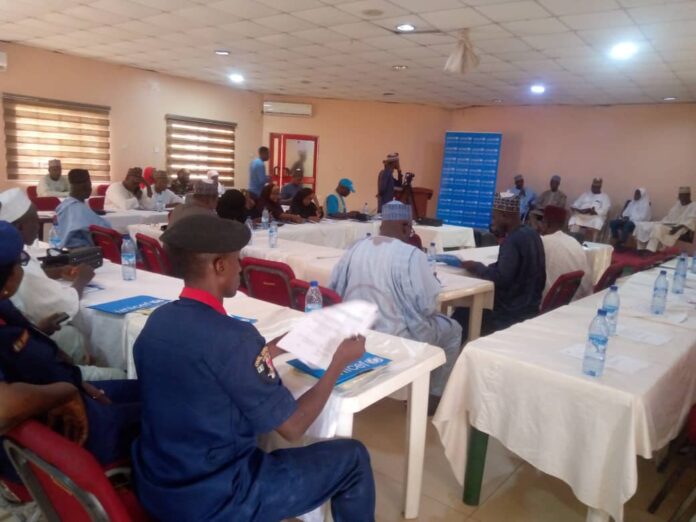The United Nations Children’s Fund (UNICEF), has advocated for effective implementation of the safe school initiatives through mobilizing education stakeholders in Sokoto, Kebbi and Zamfara states.
The UNICEF Chief of Field Office, Sokoto, Mr Micheal Juma, stated this during two-day seminar on Safe Schools in Northern Nigeria organized by UNICEF on Thursday in Sokoto.
Juma the effort was to encourage enrollment and address out-of-school syndrome as well as harness pconducive learning environment for both students and teachers in the country.
” UNICEF has developed a monitoring tool for the implementation of Minimum Standards for Safe Schools (MSSS).
” MSSS outlined minimum capacity, infrastructure and disaster preparedness a school must implement to protect children from all forms of threats.
” It also has six result areas that are strong school system, violence against children, natural hazards, conflict, everyday hazards and safe school infrastructure, ” he said.
According to him, the fund collaborate state ministries of education on findings presentations and monitoring exercise as well as identify practical ways which gabs in the implementation of minimum standards would be closed.
He explained that lack of safety in the school environment has the tendency of reducing school attendance, lower academic performances and increase drop-out rates.
He, therefore, urged governments at all levels to provide the needed safety in schools.
He reiterated that objective of the seminar was to promote awareness, present insights on monitoring the implementation of safe schools and explore actionable strategies to address the gabs.
In his address, the Zamfara state Commissioner for Education, Alhaji Wadatau Madawaki, expressed optimism that the efforts would enhance learning and safe school environment as relevant stakeholders were involved at all levels.
Madawaki said the documents were align with religious and cultural contents that were suitable for the three states as they share similar values and perspectives.
He assured rebost committment to ensure the provisions were maximally implemented stressing that three tree stare shared common challenges of insecurity and other social predicaments.
Speaking also, the Sokoto state Commissioner for Basic and Secondary Education, Alhaji Tukur Alkali, described the seminar as relevant noting that present administration has accorded priority to education sector.
Alkali urged parents and guardians to disregard misinterpretations of donor agencies supported programmes as were in accordance with state government policies of ensuring quality education, morals and productive skills training.
He explained that state government ensure payment of counterfund, recruitment of teachers and implementation of policies that promote enrollment, retention and completion of children.
Prof. Suleiman Khalid, the Chairman, Universal Basic Education Board (SUBEB) in Kebbi state, said the meeting had accorded opportunities for participating states to leverage on individuals’ success and share solutions on challenges.
Khalid urged stares to emulate Kebbi on actively working with 81 established districts education committees and 21 LGA committees mostly headed by Academic Professors that ease the implementation of different programmes.
UNICEF Education Specialist, Believe Eke, presented an overview of minimum standards for safe schools while Francis Elisha dwelled on works for creating safe, conducive schools environment through effective strategies and functioning of infrastructures.
The Newsmen reports that the event witnessed discussion from different constituted panels on provision of basic safe infrastructure in schools, challenges and addressing violence against children as well as role of communities.




